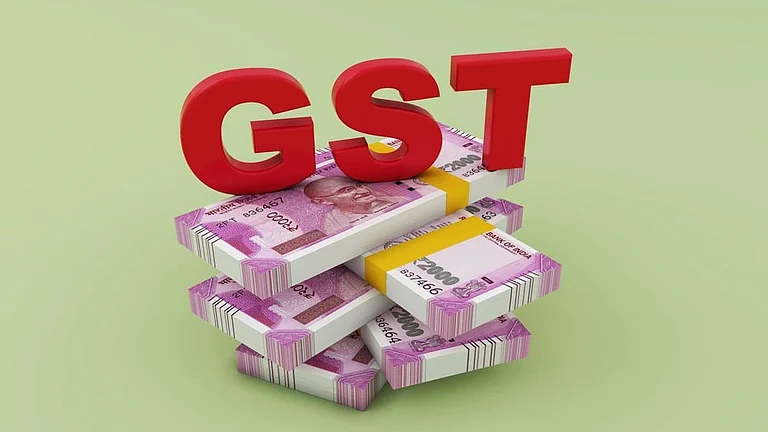GST Intelligence Officers have detected GST evasion of Rs 1.36 lakh crore in the current fiscal, the finance ministry said on Wednesday.
In a statement the ministry said, in order to tackle the menace of GST evasion, the Directorate General of GST Intelligence (DGGI) develops intelligence, especially in new areas of tax evasion, through advanced tools for data analytics besides using its intelligence network across the country to collect such information.
In the 2022-23 fiscal, GST officers had detected evasion of over Rs 1 lakh crore. Six months into the current fiscal, the evasion detection has crossed last year's number.
"Overall in FY 2023-24, Rs 1.36 lakh crore has been detected as overall GST evasion (including fake ITC) and voluntary payment of Rs 14,108 crore has been made for the same," the ministry said.
A total of 1,040 fake ITC cases involving Rs 14,000 crore have been detected so far in the current fiscal. As many as 91 fraudsters have been apprehended till date.
In case of evasion through fake input tax credit (ITC) between April 2020-September, 2023, GST intelligence officers have detected Rs 57,000 crore tax evasion.
"From April 2020 to September 2023, more than 6,000 fake ITC cases involving more than Rs. 57,000 crore GST evasion have been detected and a total of 500 persons have been arrested," the ministry said in a statement.
Since June 2023, DGGI has laid special emphasis to identify and apprehend the masterminds and disrupting syndicates, operating across the country.
Cases have been unraveled using data analysis aided by advanced technical tools which has led to the arrest of tax evaders.
These tax syndicates often use gullible persons and entice them with job / commission / bank loan etc. to extract their KYC documents which were then used for creation of fake / shell firms / companies without their knowledge and consent. In some cases, KYCs were used with the knowledge of the concerned person by paying them small pecuniary benefits, the ministry added.


























.jpg?w=200&auto=format%2Ccompress&fit=max)




